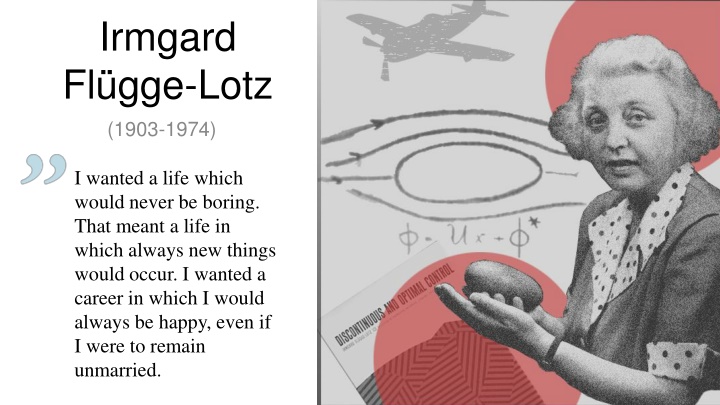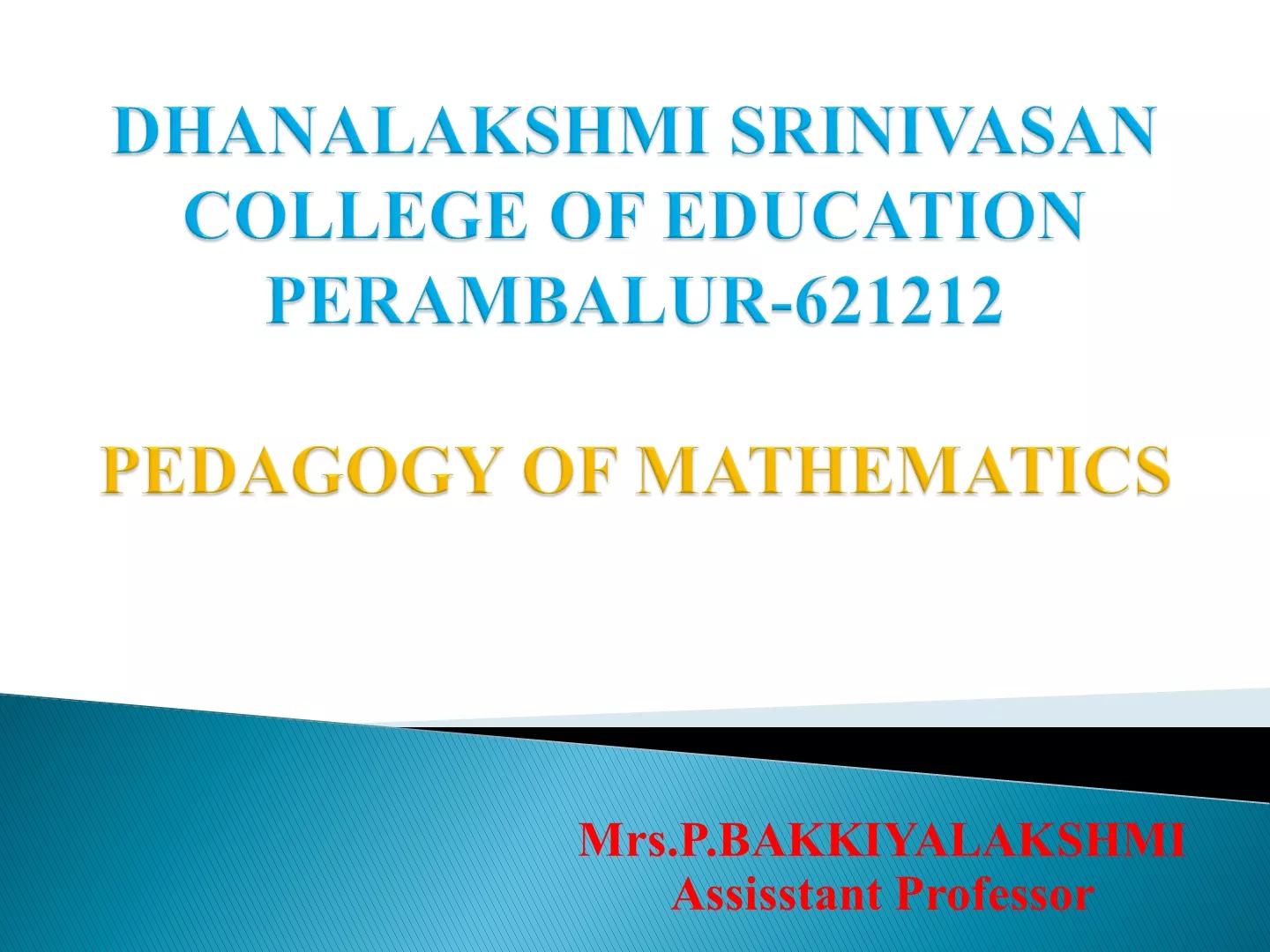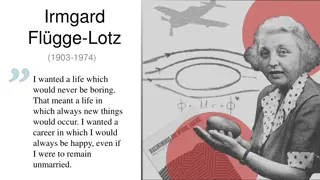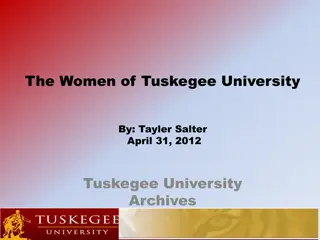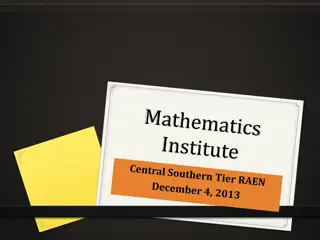Trailblazing Women in Mathematics and Engineering
Irmgard Flügge-Lotz, a German mathematician, contributed to aviation theory and became the first female engineering professor at Stanford University. Nina Thornhill, a British innovator, focuses on sustainable industrial systems. Both women excelled in their fields and received prestigious honors for their groundbreaking work.
Download Presentation

Please find below an Image/Link to download the presentation.
The content on the website is provided AS IS for your information and personal use only. It may not be sold, licensed, or shared on other websites without obtaining consent from the author.If you encounter any issues during the download, it is possible that the publisher has removed the file from their server.
You are allowed to download the files provided on this website for personal or commercial use, subject to the condition that they are used lawfully. All files are the property of their respective owners.
The content on the website is provided AS IS for your information and personal use only. It may not be sold, licensed, or shared on other websites without obtaining consent from the author.
E N D
Presentation Transcript
Irmgard Fl gge-Lotz (1903-1974) I wanted a life which would never be boring. That meant a life in which always new things would occur. I wanted a career in which I would always be happy, even if I were to remain unmarried.
German mathematician and pioneer in aviation theory Best known for: The theory of discontinuous, or on-off, control systems and the Lotz method, a method for calculating the spanwise lift distribution of a three-dimensional wing. Appointments: In 1960, she became the first female professor of engineering at Stanford University after more than a decade of performing the duties of one. Honors and awards: The Achievement Award by the Society of Women Engineers (1970) and an honorary doctorate of science by the University of Maryland (1973). She was also chosen by the American Institute of Aeronautics and Astronautics to give the prestigious annual Karman lecture in 1971.
Education: Mathematics and engineering at Leibniz University, Hannover. Influences: Irmgard Fl gge-Lotz was encouraged by her mother to pursue technical subjects. For many generations, her mother s family had been involved in construction, and Irmgard Fl gge- Lotz often visited construction sites with her uncle and attended matinee shows for technical films.
Nina F. Thornhill (b.1953) You can find anything you want in data, but whether it is meaningful requires one to understand the processes behind the analysed systems.
British innovator of tools and approaches for a more sustainable operation of large-scale production plants Best known for: Her innovative approaches and tools for process monitoring, and for the detection and diagnosis of persistent faults in the operation of large-scale industrial systems, such as chemical plants. Appointments: Professor at the Department of Electronic and Electrical Engineering at the University College of London and ABB/Royal Academy of Engineering Chair of Process Automation at the Department of Chemical Engineering, Imperial College London.
Honors and awards: The Nordic Process Control Award for her research contributions and significant contributions as a coordinator of several European Marie Sklodowska-Curie projects, bringing together industrial and academic partners to train early-stage researchers in the field of process automation and control. Education: Bachelor s degree in physics from Oxford University and master s degree in control systems at Imperial College London. Influences: Her father, who was a physicist.
